How high is the blood sugar to lose weight? Why?
[Professional doctor to answer your questions
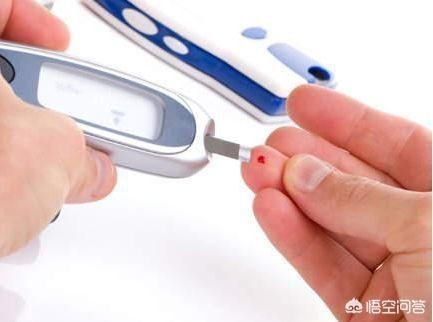
In the typical performance of diabetes mellitus of eating more, drinking more, urinating more and losing weight, weight loss is one of the most visible items, and many people will think that this is a result of high blood sugar, in fact, high blood sugar is only one of the performances caused by diabetes mellitus, and it is not a direct factor that determines the weight loss. In fact, high blood sugar is only one of the manifestations of diabetes and is not a direct factor in determining weight loss. In real life, it is common to see that even when blood sugar is controlled, weight loss still persists because weight loss is not simply caused by high blood sugar, so how can we understand this?
The reason why blood glucose will rise, the fundamental reason is that blood glucose can not be used by the body, and in the process of the body's use of blood glucose can not be separated from the participation of insulin, insulin is secreted by the pancreatic islet cells of a kind of material, its main role is to transport blood glucose into the cell, plays the role of the "means of transportation", if there is a lack of insulin, blood glucose is If insulin is missing, blood sugar is unable to enter the cells; at the same time, insulin also assumes the function of converting excess blood sugar into fat, if this conversion process can not be completed, the subcutaneous fat storage is getting less and less, and the weight will drop.
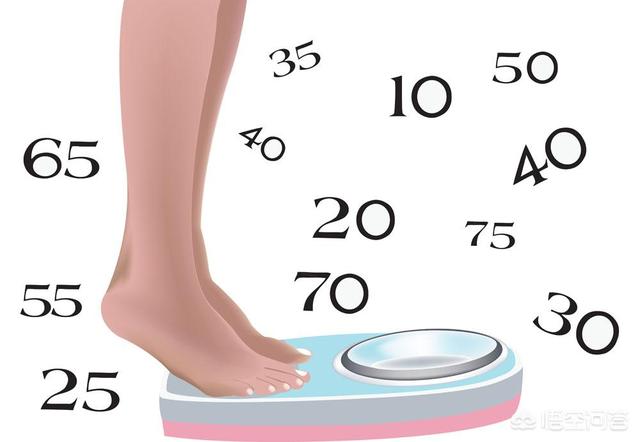
It can be seen that even if the blood sugar is controlled through dietary control and other measures, if the insulin secreted by the pancreatic islet cells becomes less and less, the conversion of fat cannot be carried out properly, and the weight will not increase, but may continue to fall. Therefore, people with diabetes continue to lose weight, suggesting that their own pancreatic islet function is declining and has reached a certain level, and diet control alone to maintain blood glucose at a normal level is not enough to gain weight.
In summary, to gain weight, you need to increase the level of insulin in the body, enhance the function of converting fat, and increase the amount of subcutaneous fat storage, which can be done by taking measures such as:
- Stimulation of pancreatic islet cells to increase insulin secretion, glucose-lowering drugs in the insulin agonist class of drugs can play a certain role, but due to their own islet cell damage is more serious, some of the apoptosis, the remaining islet cells in the stimulation of the drug at first will increase the amount of insulin secretion, but in the long run islet cells will be overloaded due to further damage to islet cells, the amount of insulin secretion will still be declined continuously! In the end, the islet cells will be further damaged due to overload, and insulin secretion will continue to drop, and the weight of the body will rise briefly and then drop.
- Direct supplementation of the missing insulin, such as injecting a certain amount of insulin to make up for the body's insulin deficiency, not only promotes the utilization of blood glucose to control blood glucose, but also has enough insulin to participate in the conversion of fat. However, the converted fat will first be stored in the internal organs, and only later in the subcutaneous, and thus often manifests itself in weight gain expressed as an enlarged stomach.

In conclusion, weight loss in people with diabetes is not determined by the level of blood glucose, but is rooted in the continuous decline of their own pancreatic function, and therefore can be used as an indicator to evaluate the effectiveness of diabetic interventions, and when weight loss seriously affects the other functions of the body, the most effective solution is to redefine the program of glycemic control, and the timely use of insulin supplementation or insulin substitution therapy is appropriate.
I hope this answer can help you, welcome to click on the attention and leave a message, together to learn and exchange more health knowledge.
Some diabetic friends are found in their own weight loss only when the hospital examination found high blood sugar and diagnosed, but some diabetic blood sugar is very high and there is no weight loss, so how high blood sugar weight loss?
Why do some people lose weight with diabetes and others don't?

Theoretically, when glucose appears in the urine, there is a tendency to lose weight, that is, when blood glucose is 8.8-9.9 mmol/L, the sugar in the body is not effectively utilized, and when the sugar in the original urine cannot be reabsorbed by the renal tubules back into the bloodstream and utilized, the calories ingested are lost, and there is a loss of weight and the symptoms of thirst, excessive drinking, and excessive urination.
But why do so many diabetics have no symptoms and no significant weight loss?
This is because some of the symptoms of diabetics are non-specific, they are not like fever, headache and other symptoms that have a clear point of reference, they are just very common in life. I'm thirsty, I'll have some water!
I'm hungry, I'll eat something!
Weight isn't measured every day, and even when it is, it's not that standardized, it might just be a matter of getting up and standing on the scale. If you lose weight, you're happy to think it's because you ate one less bite of barbecue.
No one would see anything wrong with these situations.
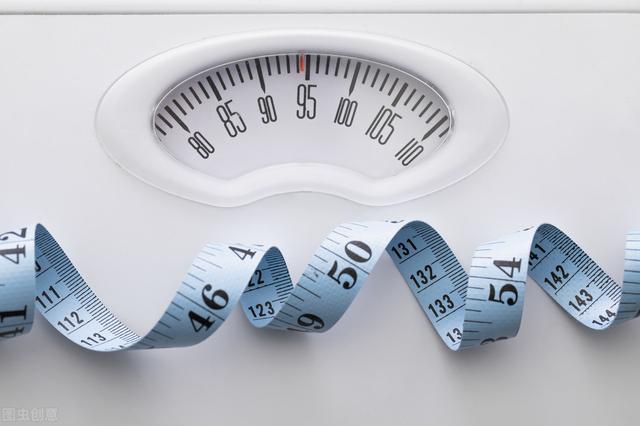
So it is only when the blood glucose is relatively high, over 13.9 mmol/L, and there is an acute metabolic disorder in the body, and the body begins to consume protein and fat as energy for the body, that there is a more noticeable change in weight, and it is possible to begin to notice an abnormality in one's weight.
But in fact, more patients come to the clinic and are hospitalized only when their blood glucose exceeds 20 mmol/L or more, when their weight loss is 5-10 kg or more, when they have obvious fatigue, when ketone bodies appear in the urine or even when they have ketoacidosis.
You can't take the change in weight as the basis for the blood sugar level, which is very unreliable. It is important to develop the habit of measuring blood glucose on a regular basis to ensure that the blood glucose is in the normal range, which is the basis for preventing the emergence of diabetic complications.
I am Dr. Sun, pay attention to Dr. Sun talk about sugar, continue to learn more quality health knowledge, attention to the message must be replied!
The standard of diabetes control is usually 7 or less on an empty stomach and 10 or less two hours after a meal; you are a little higher at 11 or less after a meal, but you are not losing weight so fast.
Are you measuring your blood sugar throughout the day? Is this a full day's blood sugar control? If your blood glucose is good in the morning and high the rest of the day, you are not in compliance, and of course you will lose weight! You need to monitor your blood glucose closely at every meal.
Also, if your blood sugars are all good, the weight loss could be caused by some other disease you have, such as hyperthyroidism, gastrointestinal disease, and this needs to be checked in the hospital to be sure.
Weight should not go or you eat low-calorie problem, people fat or thin is very simple calorie in and out of the problem, consumption of calories greater than eat, people are thin, consume less than eat people began to fat, so simple. If you eat food calorie is not low, we must consider is not absorption problems.
Lv Kelin, Chief Dietitian, Diabetes Health Management Center, Longtai Hospital, Shandong Provincial Medical Union
A common complication of diabetes is "three more and one less", eating more, drinking more, urinating more and losing weight. Nowadays, people with diabetes may not experience weight loss. The weight loss may be related to the use of metformin, a glucose-lowering drug that was first used as a weight-loss drug. The weight loss is related to high blood sugar, the use of metformin hypoglycemic drugs, and the daily diet structure. To gain weight you have to start with these 3 areas:
1, daily dietary structure adjustment is the most important, usually three meals a day reasonable arrangement is directly related to the stability of blood glucose and nutritional balance of the situation, the nutritionist suggests that if you want to increase your weight, you can in the daily dietary process to increase the intake of high quality protein, for the weight gain has very good help, the nutritionist suggests that if you want to increase your weight, you can increase the intake of high quality protein, for the weight gain has very good help.
2, usually the level of blood glucose control is very important, through a scientific and reasonable dietary structure and exercise habits, can effectively smooth blood sugar, to assist in the recovery of their own blood glucose regulation system, can promote the muscles, body tissues and organs active use of glucose to produce energy, thus reducing the body decomposition of fat and protein to provide energy, can help the body to gain weight.
3. Side effects related to drugs, metformin, acarbose and other hypoglycemic drugs will affect the body's absorption and utilization of carbohydrates as well as other nutrients, which can lead to weight loss. The appropriate medication can be adjusted appropriately.
Nutrition Summary: Through scientific and reasonable physical exercise and reasonable dietary structure adjustment, it is very effective to maintain a healthy weight. It is recommended to refer to the Chinese Diabetes Dietary Guidelines for detailed study, and you can pay attention to [Nutrition Talk 】 for more systematic video learning.

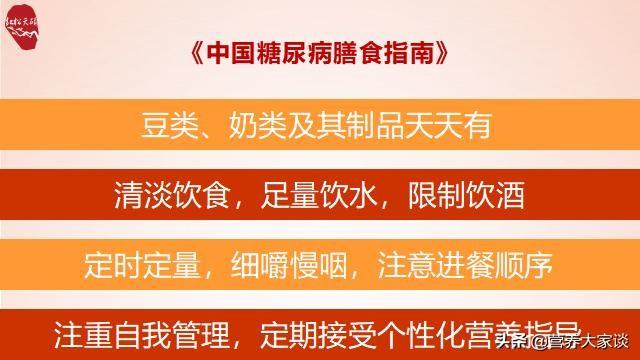

I'm Dr. Hu.
If you must ask how high blood sugar is, will you lose weight? I'll answer it this way:
If it's an adult, it's the earlier the diabetes is, the fatter it may be, regardless of blood sugar.
The longer you have poor blood sugar control, the more likely you are to lose weight the later you get into diabetes. When weight loss occurs, it indicates a relationship with pancreatic failure.
In other words. The reason that some people with diabetes are obese and others lose weight is due to pancreatic function. And not simply in blood sugar. Or more precisely, it's the balance between insulin and blood sugar.
Earlier diabetes with more obesity
If the insulin secreted is just enough to metabolize the appropriate concentration of blood glucose, then the weight is maintained at a relatively stable state. However, if there is a metabolic abnormality, in the early stages of diabetes, due to high blood glucose, insulin is produced in a compensatory manner. However, at this time, insulin is still functional, and can still perform its function of transporting blood glucose into cells, converting blood glucose into fat, and so on. In this way, high blood sugar is converted into thick fat and stored, so you are getting fatter and fatter.

Advanced diabetes, wasting much
But the good times don't last long. As diabetes gets worse, the pancreas fails or insulin becomes less functional. One is that insulin can still be secreted, but it doesn't work, it doesn't work anymore, and there is no way for the high blood sugar to be transported into the cells, or converted into fat. A large amount of blood glucose glucose is excreted in the urine, which takes away calories and water, leading to weight loss. At the same time, insulin can not properly convert glucose into energy metabolism, it can only consume more fat, protein, so the weight will naturally be reduced.

Wasting away, as in type 1 diabetes
This weight loss is akin to the absolute lack of insulin in type 1 diabetes, which prevents insulin from actually doing its job of metabolizing glucose. Thus, it is unable to absorb and utilize blood sugar and consumes too much fat, protein, etc. Making the appearance of wasting.
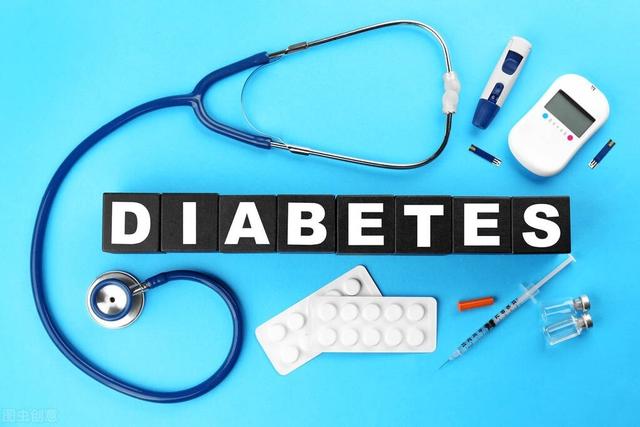
To summarize.
1. Diabetes in adults is mostly type 2 diabetes, and the earlier it is, the more likely it is to be accompanied by obesity. If long-term blood sugar control is poor, pancreatic islet failure, or insulin dysfunction, then blood sugar can not be metabolized and utilized, excreted from the urine while consuming fat and protein, the person is getting thin. Wasting is a sign of poorly developed diabetes.
2. In the case of type 1 diabetes in children and adolescents, then from the very beginning there is a lack of insulin and an inability to utilize glucose, which will begin to manifest itself as lethargy.
Follow "Dr. Hu", a doctor, M.D., to tell you medical stories in a reasonable and interesting way!
Hello, first of all, weight loss due to hyperglycemia has a great deal of individual variation, and there is no uniform standard, it is recommended to check glycated hemoglobin to assess the overall glycemic control.
Second, comparing the measurements of the home glucose meter to the hospital lab results is needed to confirm the accuracy of the home glucose meter.
In addition, according to the recommendations of the Chinese Guidelines for the Prevention and Control of Type 2 Diabetes Mellitus (2020 edition), the general fasting glucose control target for adults with type 2 diabetes mellitus is 4.4-7.0 mmol/L, and the non-fasting glucose target is <10.0 mmol/L. If the blood glucose is indeed well controlled, it is important to pay attention to other diseases as well, such as digestive disorders, hyperthyroidism, tuberculosis, and tumors.
In your case, it is recommended that you:
1) See an endocrinologist first and consult your doctor whether your blood sugar control is up to standard and whether the weight loss is caused by diabetes.
(2), if there is discomfort, inform the doctor to see if there is a chronic wasting disease other than diabetes, and ask the doctor for guidance on what specialties to see to identify the cause of the disease for effective treatment.
This question and answer are from the site users, does not represent the position of the site, such as infringement, please contact the administrator to delete.